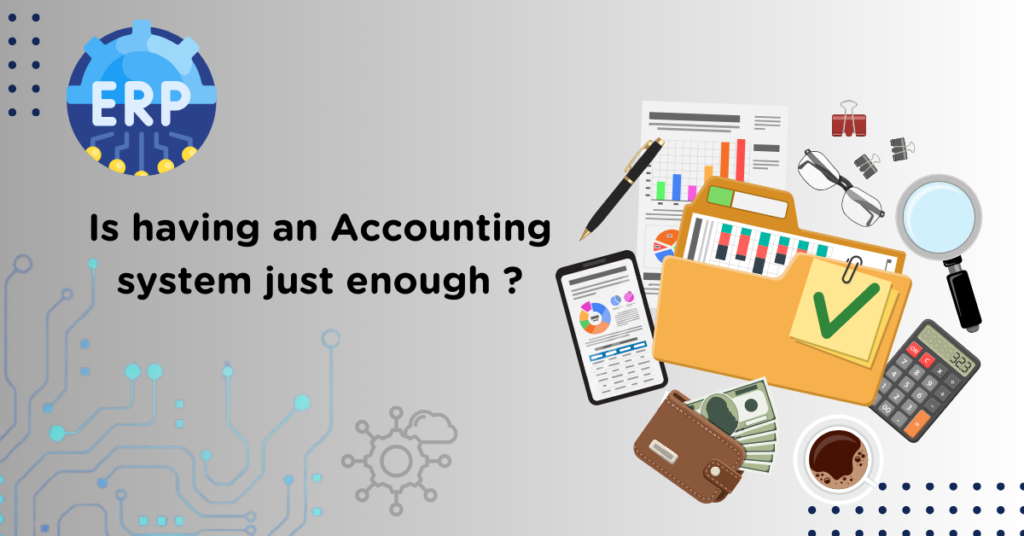
While accounting software is essential for managing financial transactions and maintaining accurate records, there are certain scenarios within a company’s operations that cannot be fully addressed by accounting software alone. Here are a few examples:
Stock Accounting: Accounting software may track purchases and sales of inventory items, but it may not provide real-time updates on stock levels or accurately reflect changes in the value of inventory. Additionally, accounting software may not be equipped to handle complex stock management processes, such as tracking raw material purchases, managing stock levels in warehouses, or calculating the cost of goods sold accurately.
Manufacturing: Manufacturing processes involve various components, including raw materials, labor costs, and overhead expenses. Accounting software may not provide comprehensive tracking of manufacturing costs or offer real-time insights into production operations. Companies may require specialized manufacturing software or an integrated ERP system to effectively manage manufacturing processes and track costs.
Human Resource Management: While accounting software may handle payroll processing and basic HR functions, it may not fully address the complexities of human resource management. HR processes such as employee benefits administration, performance management, training, and development, may require specialized HR management software or an integrated ERP system that encompasses HR functionality.
Project Management: Accounting software may not offer robust project management capabilities, such as project planning, resource allocation, task tracking, and performance analysis. Companies engaged in project-based work may require dedicated project management software or an integrated ERP system with project management functionality to effectively manage projects and track project-related costs.
Overall, while accounting software is essential for managing financial transactions, companies often require more comprehensive solutions, such as Enterprise Resource Planning (ERP) software, to address the diverse needs of their business operations. ERP software integrates various business functions, including finance, manufacturing, human resources, and project management, into a single system, providing companies with a centralized platform to streamline operations, improve efficiency, and make informed business decisions.
Small and medium-sized enterprises often begin by addressing local needs but may struggle to grow effectively. Many are unfamiliar with ERP systems, which are crucial for structured growth. Proper data management is essential for growth, and implementing ERP software helps streamline business processes, including accounting, inventory, sales, and HR. ERP software provides SMEs with the tools they need to grow and thrive efficiently.
Cloud-based applications offer several advantages, including accessibility across different locations and devices. They eliminate the need for costly hardware infrastructure and the associated management expenses.
There’s a common misconception that ERPs are only for large-scale companies. While ERPs were initially designed for big enterprises, they’re beneficial for businesses of all sizes. Whether you’re a small shop or a large corporation, an ERP system can help integrate all your business processes and data into one unified platform. No business is too small for ERP software. Even small businesses can operate efficiently and benefit from enterprise-level solutions like ERPs to streamline their operations.
Ultimately, ERPs can help improve your throughput and grow your business. From receiving a potential job to shipping the final product, small manufacturers require a system that facilitates efficient and effective job management throughout their operations. ERPs serve as the ideal tool for this purpose, offering a fully integrated system to manage every aspect of your business seamlessly.